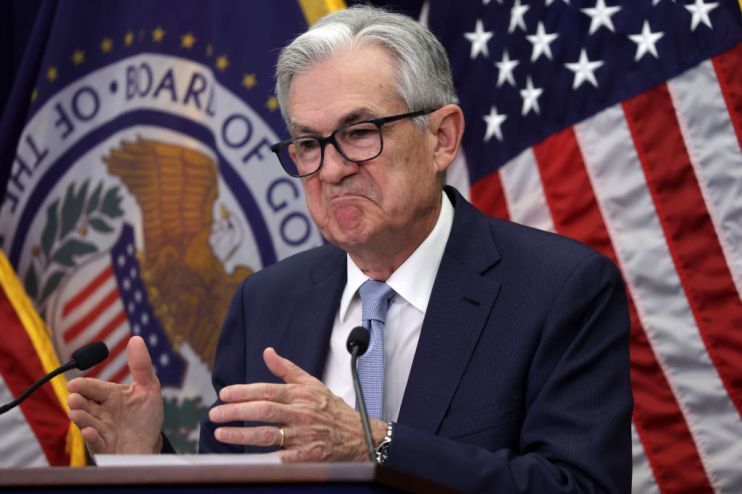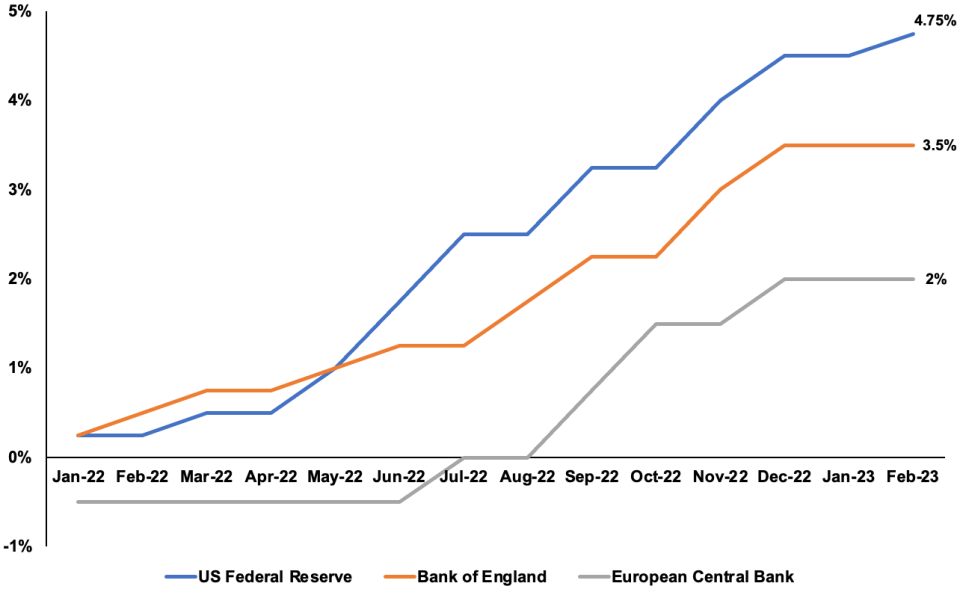Federal Reserve hikes rates 25 basis points in sign Powell is nearing end of inflation fight

The US Federal Reserve has climbed down to the lowest interest rate hike in nearly a year in a sign the world’s most influential central bank is nearing the end of its aggressive campaign to tame a historic inflation surge.
Fed chair Jerome Powell and the rest of the federal open market committee (FOMC) backed a 25 basis points increase, taking the global financial system’s anchor rate to a range of 4.5 per cent and 4.75 per cent.
It is the weakest rise since the Fed’s first hike in this current tightening cycle back in March 2022.
The announcement will likely reinforce market expectations that gathered pace ahead of the FOMC meeting that the Fed is approaching the end of this current rate hike cycle.
However, in the FOMC statement accompanying the decision, the Fed did say “ongoing increases” to the federal funds will be necessary to return inflation, running at 6.5 per cent, its lowest level in a year.
Powell said the smaller rise was designed to “better allow” the Fed to judge how steep further increases need to be. Monetary policy operates with a lag, meaning the series of tough increases last year by the FOMC are still working through the US economy.
US markets have been gradually pricing in the possibility of the Fed cutting rates at the end of the year, loosening financial conditions in the run up to this month’s month meeting.
While Powell devoted a large chunk of his post-decision press conference highlighting conditions have tightened over the last year, he did not forcefully push back against the recent market moves.
Wall Street popped after the announcement. The tech-heavy Nasdaq climbed two per cent, while the S&P 500 rose nearly one per cent. The Dow Jones actually dipped marginally.
US inflation has been coming down since last summer after it peaked at just over nine per cent, driven lower by combination of the Fed’s rate decisions and a reduction in petrol prices.
That fall has opened the door for the Fed to scale back the sharpness of increases in borrowing costs after it launched four back-to-back 75 basis points.
The move sets the stage for the Bank of England and European Central Bank tomorrow, both of which are expected to go harder than the Fed and back 50 basis point increases.
Powell, Bank governor Andrew Bailey and ECB president Christine Lagarde are trying to engineer soft landings in which they lower inflation back to their two per cent targets without tipping their respective economies into recession.
Rates have risen sharply to tame inflation

The likelihood of achieving that so-called “soft landing” is greater in the US than in the UK.
The Bank tomorrow is poised to repeat forecasts warning the country will tip into recession, albeit a much shallower and shorter one forecast back in November.
A European recession is more finely balanced. Figures out this week showed the bloc’s economy grew 0.1 per cent in the final months of last year, beating market expectations of a small contraction.